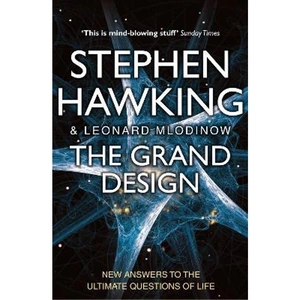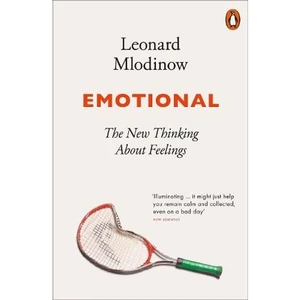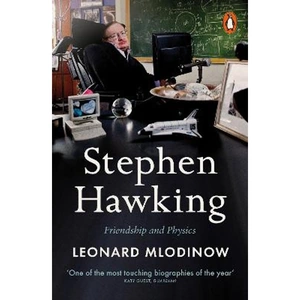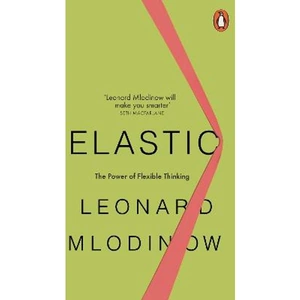The Book Depository The Grand Design by Leonard Mlodinow
2992 ratings

TO EXPLORE MORE
Price: £12.99
Brand: The Book Depository
Description: The Grand Design : Paperback : Transworld Publishers Ltd : 9780553819229 : : 20 Aug 2011 : A succinct, startling and lavishly illustrated guide to discoveries that are altering our understanding and threatening some of our most cherished belief systems, The Grand Design is a book that will inform - and provoke - like no other. The Book Depository The Grand Design by Leonard Mlodinow - shop the best deal online on thebookbug.co.uk
Category: Books
Merchant: The Book Depository
Product ID: 9780553819229
MPN: 9780553819229
GTIN: 9780553819229

Author: Serghiou Const
Rating: 5
Review: The authors in presenting the prevailing scientific thinking that has evolved over the last ten to twenty years argue that the universe or to be more precise the multiverse that is a virtual infinity of universes each with its own specific set of laws is not the result of divine intervention but rather a spontaneous genesis due to quantum events. The questions the authors address in the book are profound:why is there something rather than nothing? why do we exist? why this particular set of laws and not some other? The slim volume of less than 200 pages and small format addresses the general reader and does not include a single mathematical equation or formula. It is written clearly and concisely but on instances the reader is intimated on subtle distinctions. The reader is introduced gradually to the various relevant concepts while their theory is articulated in the concluding chapter which is the briefest of the lot but the most rigorous with closely weaved arguments. The authors adopt a view they call model-dependent realism:the idea that a physical theory or world picture is a model (generally of a mathematical nature) and a set of rules that connect the elements of the model to observations. This is the framework with which to interpret modern science. According to model-dependent realism it is pointless to ask whether a model is real, only whether it agrees with observation. An additional element is that it might be that to describe the universe, we have to employ different theories in different situations. Each theory may have its own version of reality but according to model-dependent realism, that is acceptable so long as the theories agree in their predictions whenever they overlap, that is, whenever they can both be applied. We are intimated to Feynman's original insight that a system has no just one history but every possible history and quantum theory, and in particular, the approach to quantum theories called alternative theories. In that view, the universe does not have just a single existence or history but rather every possible version of the universe exists simultaneously in what is called quantum superposition. Quantum physics might seem to undermine the idea that nature is governed by laws, but that is not the case. Instead it leads us to to accept a new form of determinism:given the state of a system at some time, the laws of nature determine the probabilities of various futures and pasts rather than determining the future and past with certainty. The book reaches its climax in the concluding chapter in which M-theory the candidate for a complete theory of the universe is presented. The elements and arguments comprising and leading to M-theory are: Any set of laws that describes a continuous world such as ours will have a concept of energy, which is a conserved quantity, meaning that it does not change in time. One requirement any law of nature must satisfy is that it dictates that the energy of an isolated body surrounded by empty space is positive, which means that one has to do work to assemble the body. If the total energy of the universe must always remain zero, and it costs energy to create a body, how can a whole universe be created from nothing? That is why there must be a law like gravity. Because gravity is attractive, gravitational energy is negative. Because gravity shapes space and time, it allows space-time to be locally stable but globally unstable. On the scale of the entire universe, the positive energy of the matter can be balanced by the negative gravitational energy, and so there is no restriction in the creation of the whole universe. Because there is a law of gravity the universe can and will create itself from nothing. Spontaneous creation is the reason there is something rather than nothing. The ultimate theory must be consistent and must predict finite results from quantities that we can measure. There must be a law of gravity, and that for a law of gravity to predict finite quantities, the theory must have what is called supersymmetry between the forces of nature and the matter on which they act. M-theory is the most supersymmetric theory of gravity. For these reasons M-theory is the only candidate for a complete theory of the universe.
Author: trini
Rating: 1
Review: I have read this book (hereafter simply `Hawking') three or four times and referred back to it several more times. My verdict is, that the book fails. In the subtitle the authors declare their aim to be to give `New Answers to the Ultimate Questions of life.' On page 10 (repeated on p. 171 in the last chapter of the book) they declare the questions they shall be answering (I add the numbering): "(1) Why is there something rather than nothing? (2) Why do we exist? (3) Why this particular set of laws and not some other?" They continue immediately (p. 10): "This is the Ultimate Question of Life, the Universe and Everything. We shall attempt to answer it in this book." But surprisingly, on page 171 Hawking tells us: "The laws of nature tell us `how' [italics in text] the universe behaves, but they don't answer the `why?' [italics in text] questions that we posed at the start of this book." Is there not an essential contradiction (and failure) here? Also, I would like to rub a little salt into this wound in the book. If science cannot provide the ultimate answers, and if `philosophy is dead', what other discipline does Hawking know of, which will be able to do this explaining? May I suggest the disciplines of Logic, Philosophy and Theology developed by the Greeks Plato and Aristotle (fourth century before Christ), and the Christian (and specifically the Roman Catholic) devlopment of these disciplines in the following Greco-Roman-Jewish world, with the high-point of St Thomas Aquinas in the thirteenth Christian century, but continuously in all the centuries. I stress that there is no reluctance, in the modern world, to accept fully the PROVEN results of the sciences of Cosmology/Archaeology and Biology/Genetics, as studied by Hawking, Dawkins, Steve Jones, etc. . [I point out that the British edition of this book, 'The Grand Design', has a dustcover with the crucially important subtitle: 'New Answers to the Ultimate Questions of Life'. But the American edition, as displayed on amazon.com, has a different dustcover, which omits this subtitle. Is it because the American publishers realized that Hawking's book fails totally to answer any of 'the ultimate questions of life', and that therefore the British subtitle is a complete nonsense?] In addition to this fundamental admission that his book will not (indeed, cannot) deliver what it had said it would deliver, there are at least three other fundamental failures in Hawking's book. (1) Something from nothing? Hawking repeats several times that there is a `spontaneous quantum creation of the universe' (see his index, under `Creation'). I quote (p.8): "M-theory predicts that a great many universes were created out of nothing. Their creation does not require the intervention of some supernatural being or god. Rather these multiple universes arise naturally from physical law. They are a prediction of science." I ask: where does this physical law come from, and the `science' that predicts it, seeing that these universes are to emerge from nothing? On page 136: "On this view [Feynman, no-boundary condition, etc.] the universe appeared spontaneously, starting in every possible way." Page 137, the caption to an illustration: "Multiverse Quantum fluctuations lead to the creation of tiny universes out of nothing." Page 180: "Because there is a law like gravity, the universe can and will create itself from nothing in the manner described in chapter 6 [Choosing Our Universe]. Spontaneous creation is the reason there is something rather than nothing, why the universe exists, why we exist. It is not necessary to invoke God to light the blue touch paper and set the universe going." For me, Hawking has said absolutely nothing that proves that "the universe can and will create itself from nothing". Where did this `blue touch paper' come from? (2) Who and what and why are we? Hawking eliminates from serious consideration what must be the central feature of any Grand Design: explaining the self-conscious, rational, scientific, logical, philosophizing, theologizing, artistic, musical, literary, remembering, planning, loving, hating, altruistic, selfish, moral, immoral, peak-of-creation human being. With a wave of the hand, he dismisses any possibility that mankind is "More than Matter" (to use the title of a 2010 book by Keith Ward). On page 181, in the last paragraph of the book, Hawking says: "We human beings ... are ourselves mere collections of fundamental particles of nature." This is a totally unfounded declaration of faith in materialism which, like `self-creation out of nothing', Hawking cannot support by any proof. On this point, Hawking simply totally dismisses what he does not like but cannot disprove. For him, `we' (I must assume that he means humankind) are of no real importance. What matters for him are multiverses and quarks, not human beings. See my next point. (3) What of free will? For Hawking, human beings have no free will. Having declared on page 5 that `philosophy is dead', Hawking in fact uses it all the time. Apart from using logic as a constant tool, on pages 32/33 (repeated on page 178) he makes the astonishing claim that human beings have no free will. Hawking says: "It is hard to imagine how free will can operate if our behaviour is determined by physical law, so it seems that we are no more than biological machines and that free will is just an illusion" (p. 32). But has Hawking proved that our behaviour is determined by physical law? Unbelievably, he hasn't even attempted to do so. He simply says that it is. For Hawking, the only reason why humans 'seem' to have free will is that, to be able to predict every single tiniest human action according to these `laws of nature' by which, for Hawking, humans are inescapably pre-governed - would be an impossible task to work out, because "one would need a knowledge of the initial state of each of the thousand trillion trillion [is that 10 to the power of 27?] molecules in the human body and to solve something like that number of [mathematical] equations ... would take a few billion years ... [{And] because it is so impractical to use the underlying physical laws to predict human behaviour, we adopt what is called an effective theory (p.32) ...Economics is also an effective theory, based on the notion of free will plus the assumption that people evaluate their possible alternative courses of action and choose the best. That effective theory is only moderately successful in predicting behaviour because, as we all know, decisions are often not rational or are based on a defective analysis of the consequences of the choice. That is why the world is in such a mess." (p.33). In my view, Professor Hawking, the reason why the world is in such a mess is because brilliant scientists .like you destroy the notion of free will and morality and religion, once you step outside your laboratory and your biology and your fossil remains and your sedimentary layers and your cosmology, and try to moralize and philosophize and theologize about what makes humankind essentially different from the brute beast... For Hawking, `free will' is not really a `fundamental feature, but [merely] an effective theory, an admission of our inability to do the calculations that would enable us to predict human actions'."In the case of people, since we cannot solve the equations that determine our behaviour, WE USE THE EFFECTIVE THEORY THAT PEOPLE HAVE FREE WILL" (p. 33, my emphasis). May I introduce a delicious quote from the must-read book by Edward Feser: ''The Last Superstition - A Refutation of the New Atheism'', which the front-cover of the book describes as ''an informed polemic against the latest crop of Village Atheists - Richard Dawkins, Daniel Dennett, & Co.'' [the 'Co.' being especially Sam Harris and Christopher Hitchens, to whom I add Hawkins in his 'Grand Design']: ''As C.D. Broad is reputed to have said (and as Dawkins's own worthlesw contributions to the debate over God's existence dramatically illustrate) 'the nonsense written by philosophers on scientific matters is exceeded only by the nonsense written by scientists on philosophy' ''(p.249). Has Hawking been pre-programmed inescapably from the Big Bang to write his books on cosmology? And have I been genetically programmed, inescapably, from the Big Bang, by the laws of nature, in 10 to the power of 27 tiny steps, to make the judgment that Hawking's view here is utter nonsense? And why does my judgment differ from Hawking's? Again, is every prisoner in jail the victim of tyranny, because he could not help committing his crimes? CONCLUSION Hawking says (p. 5, his first page of text) that people have always asked "How can we understand the world in which we find ourselves? How does the universe behave? What is the nature of reality? Where did all this come from? Did the universe need a creator?" He goes on immediately: "Traditionally these are questions for philosophy, BUT PHILOSOPHY IS DEAD (my emphasis). Philosophy has not kept up with modern developments in science, particularly physics". But on the contrary, Keith Ward says: People really want to know if the natural sciences are the only ways of finding out the truth, and if there is any way of reasonably resolving the ethical dilemmas that modern medicine puts before us" (p. 188). As Ward frequently points out, eminent philosophers (and I add, eminent scientists like Hawking) who deny that they have any philosophy, or even deny that there is such a thing as philosophy, are really holding that view because that is their considered philosophical view - philosophy is inescapable for rational humankind. For reasons of space, I must short-circuit Hawking's discussion of the origin of the laws of nature. He hypothesizes about Feynman's diagrams, multiverses with their 10 to the power of 500 possibilities (actualities?), String Theory, the Game of Life, and M-theory, in order to explain why there is this particular set of laws a













